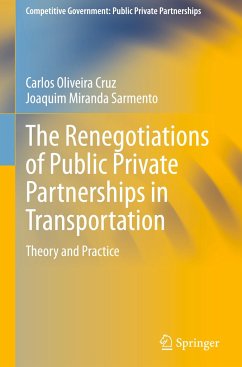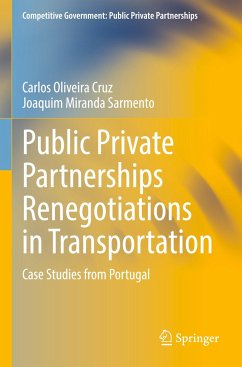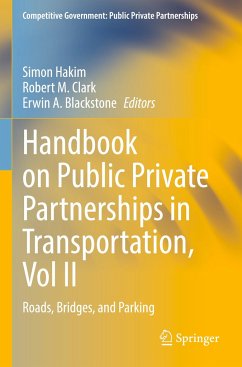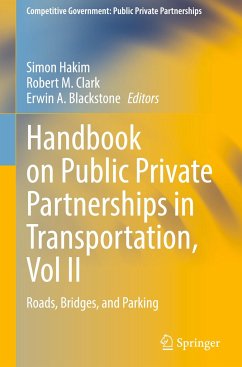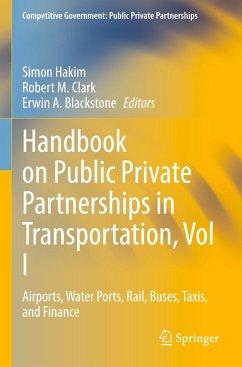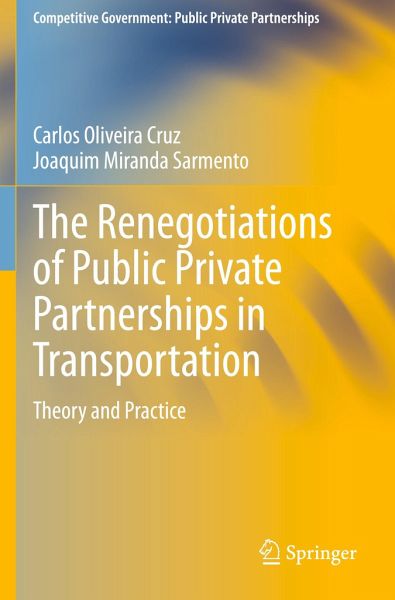
The Renegotiations of Public Private Partnerships in Transportation
Theory and Practice
Versandkostenfrei!
Versandfertig in 6-10 Tagen
149,79 €
inkl. MwSt.
Weitere Ausgaben:

PAYBACK Punkte
0 °P sammeln!
This book provides a theoretical basis for understanding the phenomenon of renegotiations in Public Private Partnerships (PPPs). It analyzes the case of transport projects, and provides empirical evidence from a variety of real-world projects. What drives renegotiations? Why are some projects more likely to be renegotiated than others? What are the outcomes? How can we improve the performance of renegotiation processes? These questions form the core of discussion in this book. PPPs are a procurement model for the delivery of infrastructure and public services that have experienced significant ...
This book provides a theoretical basis for understanding the phenomenon of renegotiations in Public Private Partnerships (PPPs). It analyzes the case of transport projects, and provides empirical evidence from a variety of real-world projects. What drives renegotiations? Why are some projects more likely to be renegotiated than others? What are the outcomes? How can we improve the performance of renegotiation processes? These questions form the core of discussion in this book. PPPs are a procurement model for the delivery of infrastructure and public services that have experienced significant growth over the last three decades, particularly in terms of the development of transportation projects. The empirical evidence suggests that most PPP projects are inevitably renegotiated, i.e., the original contract needs to be adapted to new and unforeseen circumstances. The impacts of these changes on the welfare of the respective stakeholders are frequently asymmetric. Most academic research and professional guidelines are focused on PPP contract design and preparation of the procurement process, and very little has been published on the management and, mainly, the process of renegotiating that will - in all likelihood - occur. This book fills this gap in the academic discussion. Several country-based analyses and case studies from Europe and the Americas provide the reader with practical applications of the theory.



